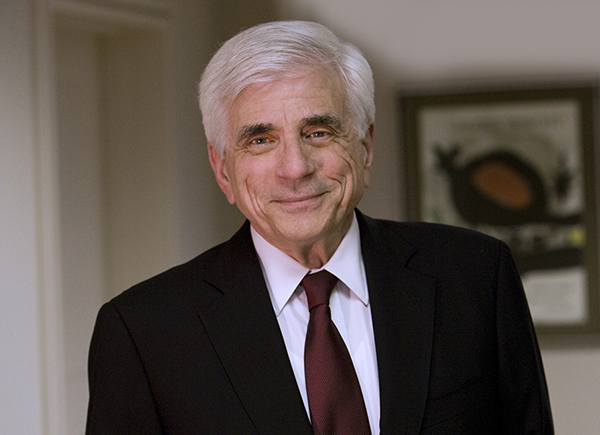AUSTIN, Texas – May 10, 2022

The Dolph Briscoe Center for American History at The University of Texas at Austin is pleased to announce the donation of the David Berg Papers, an important addition to the center’s collections on legal history and social justice. Berg is the founding partner of Berg and Androphy, with offices in Houston and New York City. In addition, Berg has agreed to join the center’s Advisory Council.
The Berg Papers document his colorful and diverse career during which he has tried virtually every kind of civil and criminal case, including his battles over censorship; racism and corruption in the Houston Police Department and the grand jury system; the Ku Klux Klan; bank fraud; the 2020 election and mail-in ballots; Enron; international oil fraud; and celebrity vodka. In addition, the papers cover his writing career as well as his political involvement, including his tenure on President Jimmy Carter’s campaign and transition teams. Researchers will find these materials in a variety of mediums, including case files, memos, legal briefs, video and audio recordings, and published and unpublished articles, as well as two of his books and a bound volume of legal, political and personal essays.
“I want to thank David for his generous donation, which is a valuable addition to the Briscoe Center’s holdings on legal history,” said Don Carleton, executive director of the Briscoe Center. “The Berg Papers reflect David’s fundamental love of justice and his consistent efforts to protect the civil liberties of the American citizen. The collection is an important source for future research in a number of topics and issues in which David has been involved in his stellar career. It joins similar archives at the center, including the papers of another famed trial lawyer, Michael Tigar, and civil liberties attorney and former U.S. Attorney General Ramsey Clark.”
“It is an honor for me to have my papers in such a prestigious research institution as the Briscoe Center,” said Berg. “I hope that future researchers and students of history and the law will gain essential insights into the workings of the justice system, especially jury trials and their central role in American democracy. I am also honored to join the center’s advisory council and serve as an ambassador for its important work.”
One of the noteworthy cases featured in the Berg papers is Schacht v. United States. At the age of 28 and only eighteen months after opening his legal practice, Berg argued and won the case in the U.S. Supreme Court, which reversed his client’s conviction for his part in an anti-war demonstration. Berg’s many notable cases also include a lawsuit against the Ku Klux Klan he filed as co-counsel with his friend Morris Dees of the Southern Poverty Law Center. The resulting ruling forced the Klan to end its harassment of Vietnamese fishermen along the Gulf Coast and its paramilitary training in east Texas. In his second civil jury trial, Berg obtained a record verdict in a wrongful death case against Union Pacific railway. A few years later, he obtained a record $475 million settlement on behalf of investors in Marriot Corporation.
The papers include Berg’s memorandum to President-Elect Jimmy Carter recommending a universal upgrade for those who saw combat in Vietnam but received less-than-honorable discharges (except for those who committed violent crimes), with Carter’s handwritten notes in the margins. The papers also comprise Berg’s most recent courtroom victory, this one against President Donald Trump, Postmaster General Louis DeJoy, and the U.S. Postal Service on behalf of the voters who did not receive their mail-in or absentee ballots during the primaries. The 2020 suit, which was consolidated with other suits across the country, resulted in a preliminary injunction that reversed the slowdown of mail-in and absentee ballots.
One notable aspect of Berg’s career reflected in his papers is his writing, including his widely acclaimed nonfiction book, Run Brother Run, the riveting account of Berg’s brother’s murder and the subsequent trial and acquittal of the alleged killer, Charles Harrelson. The New York Times noted, “What is remarkable about the book … is Mr. Berg’s writing. He elegantly brings to life the rough-and-tumble boomtown that was 1960s-era Houston, and conveys with unflinching force the emotional damage his brother’s death did to his family.”
Berg also authored the highly successful book, The Trial Lawyer: What It Takes to Win (now in its second edition) and has published dozens of articles and essays on legal and political topics in such publications as The New York Times, the Los Angeles Times, Newsweek, Litigation Magazine and the Houston Chronicle. The Berg Papers include unpublished drafts of additional book chapters related to some of his most memorable cases.
After his graduation in 1967 from the University of Houston Law Center, Berg founded David Berg & Associates, which became Berg & Androphy in 1983. The firm has received the Tier 1 “Best Law Firm” ranking for multiple practice areas by U.S. News & World Report. Berg is a member of the Texas and New York State Bar Associations, a Fellow of the International Academy of Trial Lawyers, a Fellow of the American College of Trial Lawyers, a Fellow of the Texas Bar Foundation, and an Advocate of the American Board of Trial Advocacy (ABOTA). He has received the Anti-Defamation League’s Jurisprudence Award and, since 1995, and since the early 2000s, he has been recognized by Best Lawyers in America in eight trial practice areas. David is a frequent CLE lecturer on trial skills for such organizations as the ABA Litigation Section, the Texas Bar Association, and the American Academy of CLE. He has also taught trial skills and participated in seminars on the subject at various law schools, including the University of Texas, Georgetown, Fordham, and the University of Houston.
The David Berg Papers are being processed and are closed to research at this time.


